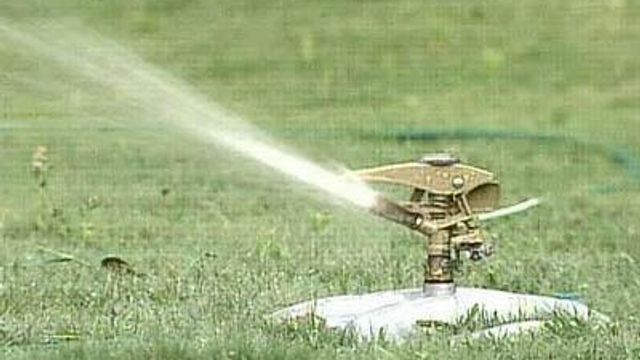Durham eyes tougher water restrictions
Officials said Friday that Durham could implement water restrictions within two weeks if the Triangle doesn't see significant rainfall before then.
Posted — Updated"We want to be prepared to be responsive," said Vicki Westbrook, assistant director of Durham's Department of Water Management.
Much of the state, including the Triangle, is experiencing moderate drought conditions, according to state officials. A few counties to the northeast of the Triangle are in a severe drought.
Stage 1 water restrictions are set to take effect in Durham when the combined water levels of Lake Michie and the Little River Reservoir, the city's two primary sources of drinking water, dips to 75 percent of capacity.
Lake Michie, which was one of the hardest hit reservoirs in the record-setting drought of 2007-08, is 3 feet below normal levels but still holds enough water to meet demands for more than six months, Westbrook said.
The main change under Stage 1 restrictions is limiting outdoor irrigation to once a week, down from as many as three days a week allowed under current rules.
"We want to make sure that we stay ahead of the game as far as possible," Westbrook said. "We want customers to really recognize, you know, it's been a very hot, dry summer. But we have been in good shape. Our lake levels are really reasonable."
Water usage in the Bull City is up 14 percent over this time a year ago, she said.
Durham resident Emily Maxson said local water customers shouldn't be upset to start cutting back.
"If it's what we need to do to protect the environment, then it's what we need to do to conserve resources," Maxson said.
The earliest Durham could enact Stage 1 restrictions is Oct. 7. The city also has the option of pulling water from Jordan Lake, if needed.
Jordan Lake, which already serves as the primary drinking water source for Cary and neighboring towns in western Wake County, is almost 2 feet below normal levels. Meanwhile, Falls Lake, which is the main reservoir for Raleigh and six other Wake County towns, is almost 3 feet below normal.
Both Raleigh and Cary issued notices Friday to remind water customers of the year-round restrictions in place and to encourage conservation during the deepening drought.
• Credits
Copyright 2024 by Capitol Broadcasting Company. All rights reserved. This material may not be published, broadcast, rewritten or redistributed.






